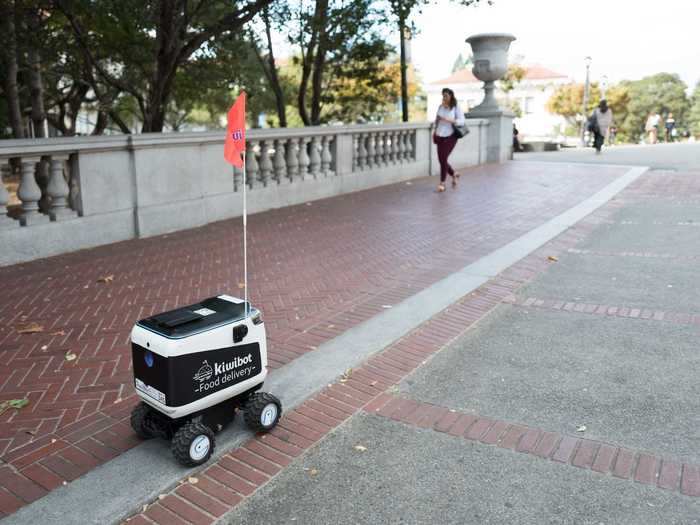
Rappi Kiwibot.Photo from Fredy Builes/VIEWpress via Getty Images)
Colombian delivery app Rappi is yet another company turning to robots to reduce reliance on human workers during the coronavirus pandemic.
In addition to Colombia, Rappi operates in Mexico, Peru, Chile, Uruguay, Argentina, and Brazil. Last spring, SoftBank invested $1 billion — one-fifth of its Innovation Fund for Latin America — in the startup. It was founded in 2015, and other investors include Sequoia Capital, Andreesen Horowitz, and Y Combinator.
Colombia is currently under a lockdown set to end in May, though it may be extended again. Earlier this month, Bloomberg reported on the lack of coronavirus testing throughout Latin America, making it difficult to assess how widespread the virus is in the region.
Like in other countries, the Colombian delivery app is using robots to complete orders at a time when people are at risk of catching the virus from interacting with others. So far, the robots are part of a pilot in Medellin, with potential to expand.
Here's what it looks like.
Read the original article on Business Insider
Source: The New York Times


Source: The Star

Source: Kiwibot




Source: The Star






 I spent 2 weeks in India. A highlight was visiting a small mountain town so beautiful it didn't seem real.
I spent 2 weeks in India. A highlight was visiting a small mountain town so beautiful it didn't seem real.  I quit McKinsey after 1.5 years. I was making over $200k but my mental health was shattered.
I quit McKinsey after 1.5 years. I was making over $200k but my mental health was shattered. Some Tesla factory workers realized they were laid off when security scanned their badges and sent them back on shuttles, sources say
Some Tesla factory workers realized they were laid off when security scanned their badges and sent them back on shuttles, sources say Stock markets stage strong rebound after 4 days of slump; Sensex rallies 599 pts
Stock markets stage strong rebound after 4 days of slump; Sensex rallies 599 pts
 Sustainable Transportation Alternatives
Sustainable Transportation Alternatives
 10 Foods you should avoid eating when in stress
10 Foods you should avoid eating when in stress

Copyright © 2024. Times Internet Limited. All rights reserved.For reprint rights. Times Syndication Service.